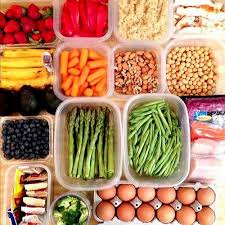How This Helps
The word ‘protein’ has its source in Greek “preteos”, meaning the thing of most importance .Protein is obviously a vital component of our body and works from multiple facets to keep use alive.
Science and Research
Protein in Diet:
I am a vegetarian from the age of 12 years and it was right from that time when I have been facing the question about my source of proteins in food. This question may appear to be simple, but there is a lot hidden behind the simplicity. Why is it so that nobody asks about my source of beta- carotene or fiber? I was always surprised with the fact that protein is the nutrient that generated serious concern about my diet and health and that too from strangers. It was not just the question of protein in diet but my own concern of being the question repeatedly that increased my interest in nutrition. The result was that I got myself enrolled at the Bastyr University and achieved a graduate degree in nutrition. It has been 15 years since I am left eating animal protein and it is now time that I feel is the right time for me to answer the question from the right perspective and with necessary citations.
This particular question about the source of protein went to a new level when I went for a hike along the Pacific Crest Trail. The event was like walking 20 to 30 miles every day and I came to know that thru hikers are of the notion (the majority of the hikers actually do follow this way of nutrition) that foods rich in protein are important to build up the muscles as well as recover them. Not only that, the food option for hikers is pretty limited as we have to eat that we can carry. So, there is no way to enjoy soy burgers or marinated tofu steaks with tasty cashew cheese.
It was only after going through The China Study that I came to know the reason for so much concern about protein in our diet. The presence of protein as a nutrient was discovered in the year 1839 and since then it has been under the limelight and also considered to be the most sacred among other nutrients . The 19 th century world considered protein and meat synonymous and this cultural association are still with us. Serving meat during main meals has become the symbol of wealth as well as health. Right from the discovery of the presence of proteins, it was believed that one must consume twice the required amount of protein in order to sustain a healthy life. That was probably because of the cultural bias that more is always better .
The paragraph above sets the stage or the historical scenario on which many people and even the nutritionists build their perspective on health and nutrition these days. We will just have to step back a bit to find out the scenario that is totally different. Look at the healthy people from Asia, South America and Africa who consume fewer amounts of animal protein as compared to the population in the







